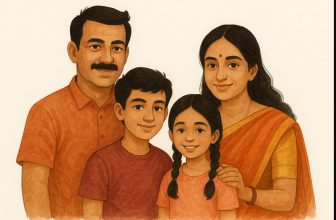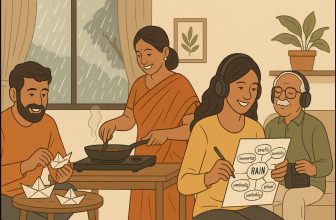In India, life often moves along a path set by family expectations, financial responsibilities, and social pressures. People study courses they don’t enjoy, take jobs they don’t love, and postpone their dreams for “later.” When they finally reach later life, they look back and realize that some chances never return. Regrets about health, money, relationships, and personal growth weigh heavily, especially when options are fewer in old age.
But it doesn’t have to be that way. By listening to the voices of those who came before us, we can prepare differently. Their regrets can be our guide, showing us what to focus on today so that we don’t repeat the same mistakes tomorrow.
Let’s look at 13 common regrets people have late in life, along with practical ways you can prevent them.
Regret 1: Not Saving and Investing Early
Ravi, now 58, often says he wishes he had started a SIP in his 20s. Instead, he relied on his private job pension, which no longer covers his lifestyle and medical bills. He feels dependent on his son, which he admits is uncomfortable.
You can avoid this by starting small but consistent investments early. Even ₹1,000 a month in a mutual fund through SIP can grow into lakhs over decades. Open a PPF account for long-term security and use the NPS to build a retirement corpus. Don’t forget health insurance; if Ravi had taken it at 25, his premium would have been one-third of what he pays now. An emergency fund of at least three months’ expenses is a must for unexpected shocks.
Regret 2: Ignoring Health Until It’s Too Late
Shalini, 62, spent her 30s and 40s focusing on her children and never on herself. She skipped routine checkups, and by the time she discovered her diabetes, it had already led to complications. She now regrets not caring for her body when she had the energy.
You can prevent this by adopting preventive healthcare habits. Book annual health packages at affordable labs like Thyrocare or Apollo. A 30-minute walk daily, combined with yoga or stretching, helps more than waiting for “when you have time.” Replace fried snacks and sugar-loaded tea with fruits, nuts, and home-cooked food. Small daily habits protect you from big future regrets.
Regret 3: Over-Prioritizing Work and Ignoring Family
Arun, who worked in IT, remembers missing his daughter’s school functions because he was stuck in traffic or late in meetings. Today, he says those lost moments hurt more than the projects he once thought were important.
You can balance work and family by setting boundaries. Turn off emails after office hours and use weekends for family outings. Even simple routines, like a Sunday breakfast together or evening walks with your parents, build lasting memories. Leave days are not just for vacations; use them to attend family milestones.
Regret 4: Not Pursuing Education or Skills
Meena, 55, left college after marriage. Today, she regrets not finishing her degree. She feels left out in conversations with her neighbors and children’s.
The solution is to never stop learning. You can take online courses on platforms like SWAYAM (government-backed) or Coursera at affordable rates. Learn practical skills such as Excel, digital marketing, or English communication. Even a few hours a week can build confidence and open new doors.
Regret 5: Following Only Society’s Path, Not Personal Passion
Suresh became an engineer because his parents insisted, but his real love was painting. He now regrets not giving his art a chance. His canvases lie unused in the storeroom.
You don’t have to choose between stability and passion. Dedicate weekends or evenings to your interests. Join art groups, perform music at open mics, or start small projects. Platforms like Meesho or Instagram allow you to showcase your work. Pursuing passion alongside career prevents this deep regret.
Regret 6: Not Building Strong Relationships Beyond Family
Lakshmi feels lonely after her children moved abroad. She realizes she never nurtured friendships outside the family. Now, she longs for company but finds it hard to rebuild circles.
You can avoid this by maintaining connections. Stay active in WhatsApp groups, join cultural associations, or volunteer with NGOs. Host small gatherings with neighbors or friends. These relationships become your emotional safety net in later years.
Regret 7: Avoiding Travel and Exploration
Mohit spent his whole life saying he’d travel “after retirement.” When he finally had time, arthritis limited his mobility. He now regrets never seeing the Himalayas.
Instead of postponing, plan budget-friendly trips regularly. Save a small amount monthly for travel and explore nearby places on long weekends. India offers diverse destinations, from Rishikesh to Coorg, that don’t require international budgets. Memories from travel stay longer than gadgets or luxuries.
Regret 8: Not Expressing Feelings and Apologies
Many Indian parents regret never telling their children “I love you.” Some regret fights with siblings that were never resolved. When people pass away, these unspoken words weigh heavily.
Break this cycle by practicing open communication. Thank your parents for their sacrifices, say sorry quickly after arguments, and share appreciation with your spouse and children. A small message, a note, or a smile with kind words can prevent decades of regret.
Regret 9: Living Only for Others’ Approval
Rita, 60, feels she lived her life for “log kya kahenge.” She married early, chose a safe job, and avoided risks. She says she doesn’t dislike her life but feels it was never fully hers.
The way out is to set goals aligned with your values. Maintain a journal of your decisions and question whether they are truly yours. Practice assertiveness to say no when needed. Respect family and society, but don’t lose yourself in the process.
Regret 10: Ignoring Mental Health
Sunil struggled with depression in his 30s but never sought help. He thought therapy was shameful. Today, at 65, he admits losing precious years to silence.
Treat mental health like physical health. Use helplines like iCall or affordable online platforms such as YourDOST. Practice meditation, journaling, or mindfulness to manage stress. Sharing with friends or safe groups also reduces the burden. Addressing this early ensures you don’t carry unresolved struggles into old age.
Regret 11: Not Taking Calculated Risks
Raghav wanted to start a small bakery but stayed in his bank job. Decades later, he wonders what could have been. He still says, “If only I had tried.”
You don’t need to risk everything. Test ideas part-time, save a backup fund, and consult mentors. Platforms like Startup India and TiE provide guidance. Even if your attempt fails, you’ll have peace knowing you tried, rather than the pain of never trying.
Regret 12: Neglecting Spiritual or Personal Growth
Many elders say they achieved financial success but still feel empty. They wish they had started spiritual practices earlier.
Make space for inner growth. Spend 15 minutes daily on meditation or yoga. Read texts like the Bhagavad Gita or writings of Vivekananda. Join communities like Vipassana or ISKCON if you seek guidance. A balance between material success and spiritual grounding ensures peace in later years.
Regret 13: Not Documenting Life Memories
Grandparents often regret not preserving their stories. Old photos fade, and traditions get forgotten because nothing was recorded.
Start small. Write a diary, record voice notes, or keep family photo albums. Save digital memories on Google Photos or cloud storage. These become priceless treasures for future generations.
Summary – Avoiding Regrets
Regrets are not about the mistakes we make, but about the chances we never take. In India, where family and work often dictate life’s pace, it’s easy to ignore yourself until much later. But you don’t have to wait for hindsight to show you what’s important. By saving early, staying healthy, protecting your relationships, and being honest with yourself, you can design a future that feels secure and fulfilling.
The goal is not to live without mistakes, but to live without unspoken words, neglected dreams, or financial insecurity.





